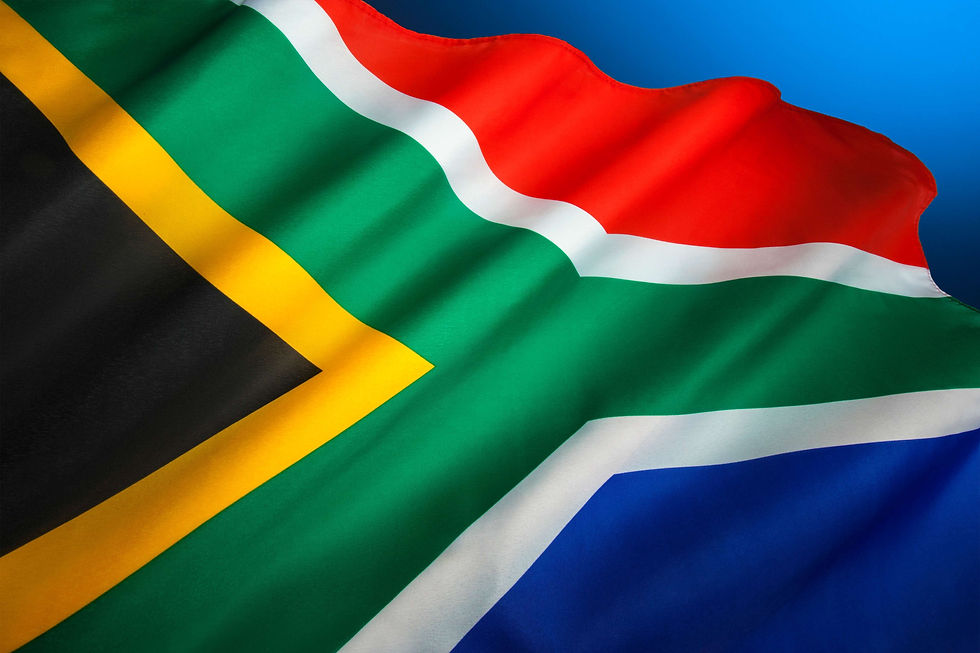NELSON MANDELA FOUNDATION CHAIRPERSON NALEDI PANDOR HIGHLIGHTS CHALLENGES FACING WOMEN IN SOUTH AFRICA
- BEE NEWS
- Aug 18, 2025
- 4 min read
Central News | 17 August 2025

Nelson Mandela Foundation Chairperson Naledi Pandor highlights challenges facing women in South Africa, stressing the need for more female entrepreneurs and access to economic power as she reflects on the legacy of the 1956 Women’s March.
Johannesburg – Nelson Mandela Foundation Chairperson Dr Naledi Pandor says women in South Africa face many challenges that need to be addressed. Speaking alongside her daughter in a reflective discussion on the ongoing struggles of women, even after the historic Women’s March on 9 August 1956, Pandor pointed out the lack of economic power for women and called for greater support for female entrepreneurs. This comes amid broader concerns about gender inequality in the country, where women continue to battle poverty, limited education, and rural isolation.
Pandor further highlighted that women do not enjoy access to economic power. She says the country needs more female entrepreneurs to provide support to women who wish to be in business. Pandor and her daughter were reflecting on the challenges that women still face even after the Women’s March on 9 August 1956. Pandor elaborates, “I think sadly, African women, Black women in particular, continue to face the triple challenges that we used to speak of when we were theorising the economics of apartheid: that they are Black, they are without skills, they are without high-level education, and they live primarily in rural areas. Those triple challenges impact negatively on women. I speak from the perspective of business as an entrepreneur; there is still a lot of work that needs to be done to support women who are building businesses.”
Historical Context of the 1956 Women’s MarchThe Women’s March of 1956 remains a cornerstone of South Africa’s fight against apartheid and gender oppression. On 9 August that year, over 20,000 women from all races marched to the Union Buildings in Pretoria to protest against pass laws that restricted Black women’s movement and employment. Led by figures like Lilian Ngoyi, Helen Joseph, Rahima Moosa, and Sophia Williams-De Bruyn, the march symbolised unity and resistance. It paved the way for National Women’s Day, celebrated annually on 9 August, to honour women’s contributions to democracy.
Pandor’s reflections tie directly to this legacy, noting how the “triple challenges” – race, lack of skills and education, and rural living – echo the apartheid-era barriers that the march sought to dismantle. Despite 30 years of democracy, these issues persist, with Black women bearing the brunt. Statistics from Statistics South Africa show that female unemployment stands at 35.5%, higher than the national average of 32.9%, and women in rural areas face even steeper hurdles, with limited access to jobs, education, and healthcare.
Persistent Challenges for Women in South AfricaPandor’s comments shed light on deep-rooted inequalities that affect women across the country. Economic exclusion is a major barrier, with women owning only about 21% of businesses, according to the Commission for Gender Equality. This lack of economic power limits their ability to escape poverty cycles, support families, or invest in communities. Rural women, who make up a large portion of the population, often lack basic infrastructure like reliable water, electricity, and transport, which hinders business growth and education.
Gender-based violence (GBV) adds another layer of hardship. South Africa has one of the highest rates of femicide in the world, with over 2,700 women murdered in 2023 alone, as per police data. Pandor, a former Minister of International Relations and Cooperation, has long advocated for women’s rights, drawing from her experience in global diplomacy where she pushed for gender equality in forums like the United Nations. Her role as foundation chairperson since 2024 allows her to focus on Mandela’s legacy of social justice, including empowering women.
Education and skills gaps remain critical. While more girls enrol in school than boys, dropout rates are high due to teen pregnancies, poverty, and family duties. Only 23% of women hold tertiary qualifications compared to men, limiting their entry into high-paying fields like technology and engineering. Pandor, an academic with a background in education policy, stressed the need for targeted programmes to build skills and promote entrepreneurship among women.
Call for More Female Entrepreneurs
Pandor’s push for more female entrepreneurs aligns with national efforts to boost women’s economic participation. Initiatives like the Women Economic Assembly, launched in 2021, aim to connect women-owned businesses with supply chains in sectors like agriculture and manufacturing. However, challenges like access to funding persist – women receive just 10% of venture capital in South Africa, per a 2024 report from the African Development Bank.
She urged society to support women in business, noting that successful female entrepreneurs can mentor others and create jobs. Examples include women-led cooperatives in rural KwaZulu-Natal producing crafts and food products, which have lifted communities out of poverty. Pandor’s daughter, joining the conversation, shared personal insights on navigating these barriers, adding a generational perspective to the discussion.
‘Disclaimer - The views and opinions expressed in this article are those of the author(s) and not necessarily those of the BEE CHAMBER’.



